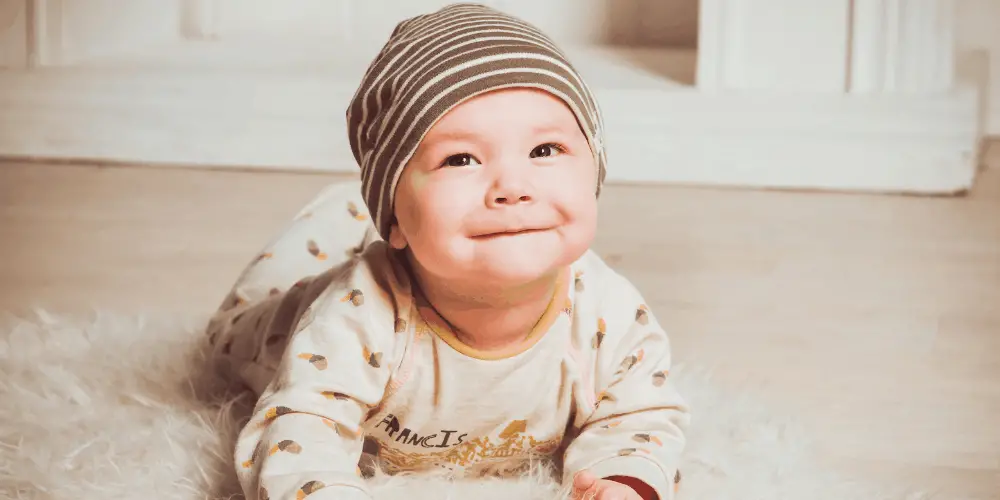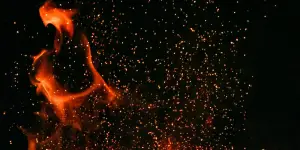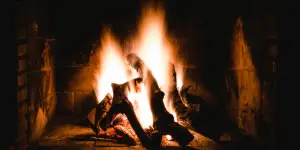A fireplace could make any frosty evening cozy. Who wouldn’t like a comforting fire? Babies are an exception here. You cannot leave a baby around the fireplace without supervision for numerous reasons, including the obvious one; they may accidentally burn themselves.
There are certain safety reasons why babies should be kept from fireplaces. Read on to know more, and you might want to check this learning guide on how to baby-proof a fireplace at your home, thinking about the safety of your children.
We’ve also listed the best baby gates for fireplaces, which you can check.
Why is a fireplace Dangerous for babies?

A fireplace can be safe for babies only if it has been perfectly installed, which is not always the case. Often, wood-burning, gas, or electric fireplaces are poorly installed, which can be harmful to infants. The following are the two primary reasons why fireplaces can damage young children. Still, if the fireplace is already there, you may want to add this written guide to answer the question of what age you need baby gates.
1. Emission of Carbon Monoxide

Carbon Monoxide has many deadly properties that can easily emit poison from an innocent-looking fireplace. When the fire is ignited and the smoke emitted from it is given little or no room to escape, it can become poisonous due to increased volume and density. While high levels of carbon monoxide can harm adults, even a relatively low level can prove to be deadly in the case of babies.
You’d have a few clear indications if your infant is being affected due to the fumes, which is carbon monoxide in disguises, like gentle coughing, dizziness, or nausea. If the child displays any of these signs, they can react to the poisonous gas, which is harmful but too low of a concentration to be harmful to you. This could breed respiratory illnesses in the child, especially if there have already been certain underlying symptoms of respiratory diseases. (1)
Studies have shown that numerous babies suffer around fireplaces because of the pollution emitted by the same thing we perceive as comfortable.
2. Burn injuries

You cannot expect a child to know that fire burns. The worst part is, the more you pull the baby away from fire, the more their curious minds would be enticed to touch it. There’s no winning against that. This could cause the baby to burn its hands or legs.
Not only are wood-burning fireplaces dangerous in this regard, but also gas fireplaces, which can heat the iron parts of the fireplace, making them writhing hot. The infants could suffer from the following kinds of burns, according to the American Academy of Pediatrics:
- A First-degree burn is a Mild burn that affects the first layer of the skin.
- A Second-degree burn is: Severe than a first-degree burn, as it affects the outer layer of the skin.
- A Third-degree burn: Most severe burn affects the deeper tissues and results in white or blackened skin. (2)
These burns can be immensely painful to infants, particularly if they have developed blisters and darkened skin. The effects may be noticeable for a long time. Therefore, all precautions must be taken to ensure your child does not suffer from any of these burns.
You can take a few measures to ensure that your child does not suffer from such burns, nor is he subjected to the pollution caused by carbon monoxide. Primarily, make sure that the fireplace, wood-burning or gas, is installed perfectly.
While a fireplace can seem comforting, it can be detrimental to infants, especially if they already suffer from certain respiratory illnesses like asthma. Thus, always keep an eye on your baby when you’re sipping your cocoa in front of a roaring fire. If your child is acting up because of the fumes, take them outside and allow them to breathe fresh air.
References
(1) respiratory illnesses – https://www.choc.org/news/7-common-respiratory-diseases/
(2) kinds of burns – https://www.webmd.com/first-aid/types-degrees-burns
